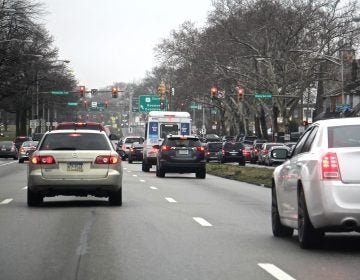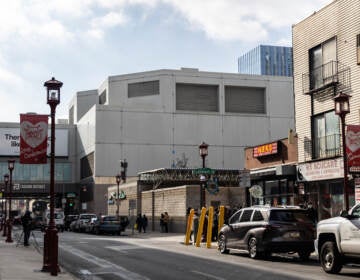Historical Commission grants Penn hardship, tables demo case for Episcopal Cathedral
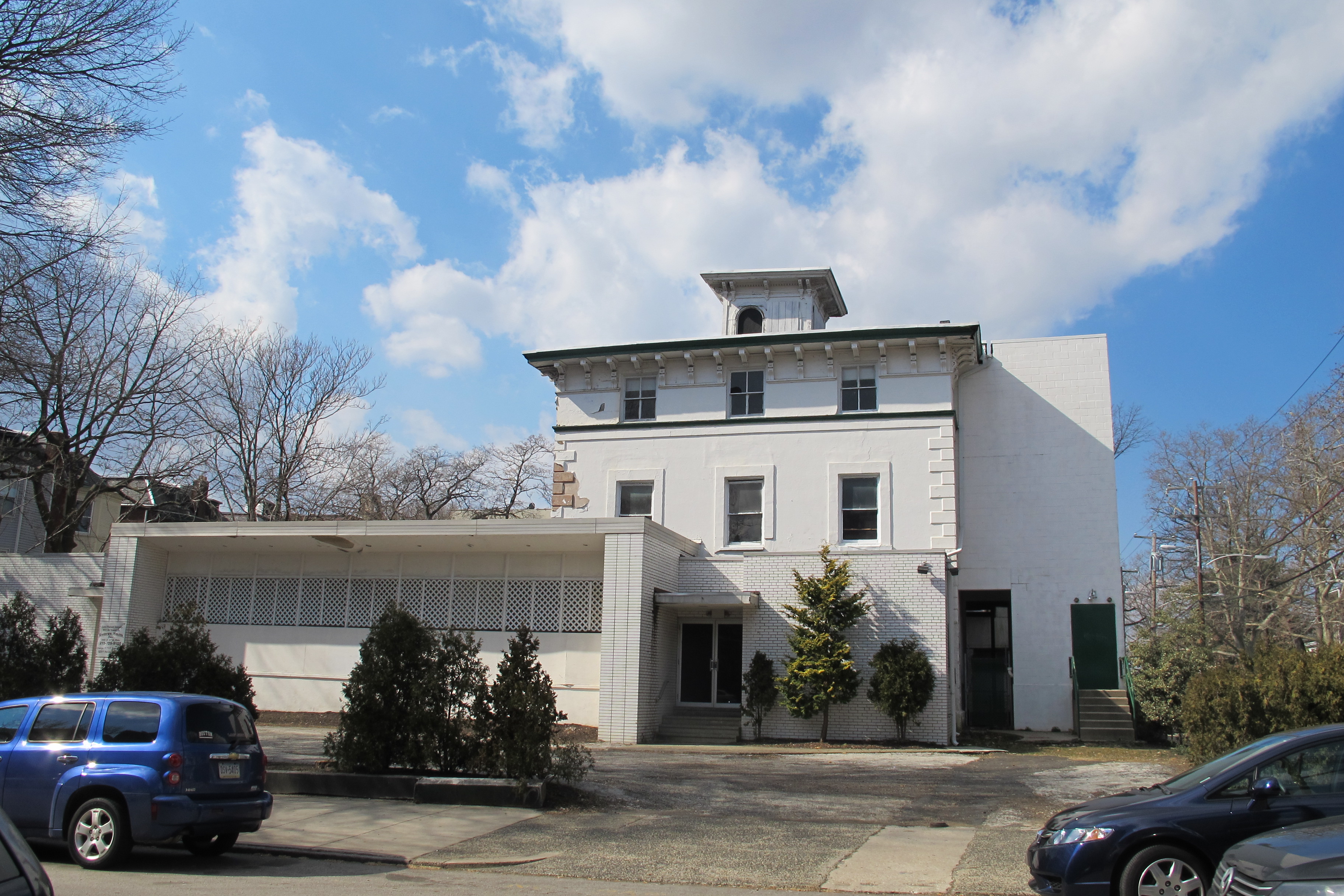
At Friday’s Historical Commission Meeting two important, and unusual hardship cases in West Philadelphia dominated the nearly eight-hour session. Penn was granted its request to demolish a property it owns at 40th and Pine, while the Episcopal Cathedral at 38th and Chestnut will have to wait for a future hearing for its hardship outcome.
40th and Pine:
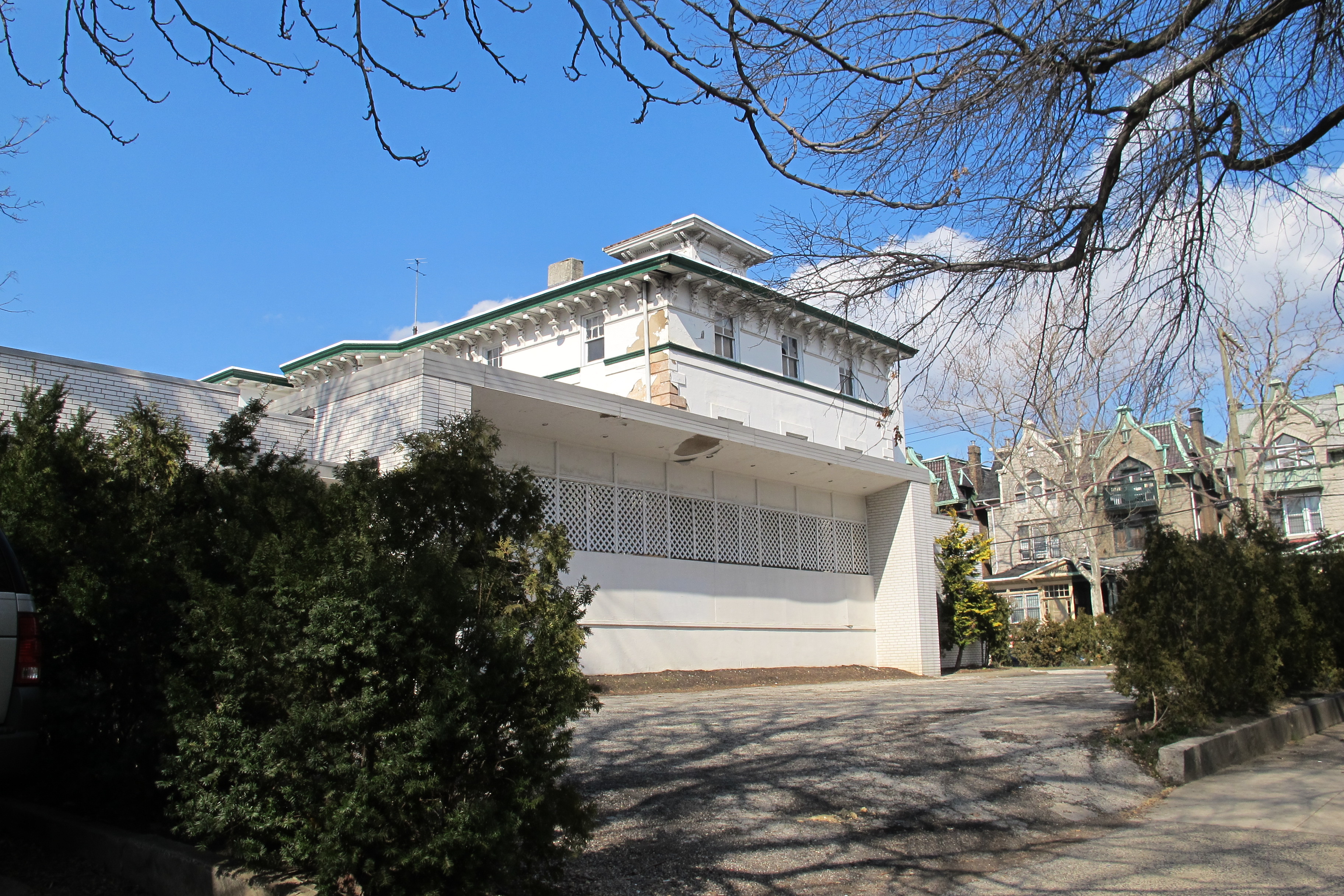
The University of Pennsylvania received permission to demolish a historic, but badly altered, Italianate mansion at the corner of 40th and Pine, with a vote of six to three (with one abstention).
Penn has attempted to find a new use for the building since 2003. The University’s latest market-driven attempt resulted in a proposal for a seven-story residential building to be constructed alongside a restored mansion. The Historical Commission previously approved that plan at its meeting in October 2011, as PlanPhilly reported, but neighbors balked and called for a lower-scale building.
Penn’s subsequent analysis found that alternative scenarios to restore the mansion and construct a new building with fewer than 7 stories were not financially feasible. That determination is in large part, due to the target rental market for the units, as well as the cost of construction and rehabilitation.
At Friday’s meeting a coalition of Spruce Hill neighbors and preservation advocates testified in opposition to Penn’s hardship claim, alleging that Penn did not try to sell the property, explore enough leasing options, and that the developers expect too great a return on their investment.
As Eyes on the Street reported Thursday, Penn’s case for hardship relies on the neighborhood’s desire for a lower scale building, not because a seven-story building is impracticable. The case then relies on the presumption that the University would not be able obtain the necessary zoning variances to build a building at seven stories, therefore creating a hardship.
Commissioner John Mattioni put forward a motion to deny the hardship, which was defeated. Sara Merriman then motioned to accept the hardship, which was approved 6-3 with one abstention. Penn will need to get its zoning permits and finalize project financing before demolition commences.
The hardship finding will allow Penn to raze the site at 40th and Pine, and they are proposing a new five-story residential building for the site. The Commission’s Architectural Committee approved this design in concept in late April, and at Friday’s hearing architect Sam Olshin presented Atkins Olshin Schade’s designs for the development. Neighbors again expressed disappointment with the conceptual design’s scale, but members of the Historical Committee found the design to be “compatible” with the neighborhood.
The full Commission approved the five-story proposal in concept by a vote of 8-1 (with one abstention.)
Paul Boni, attorney for a group of Spruce Hill and Woodland Terrace neighbors, said that his clients plan to challenge the Commission’s hardship findings. The next battleground for this property will be at neighborhood zoning meetings and a Zoning Board of Adjustment hearing.
38th and Chestnut:
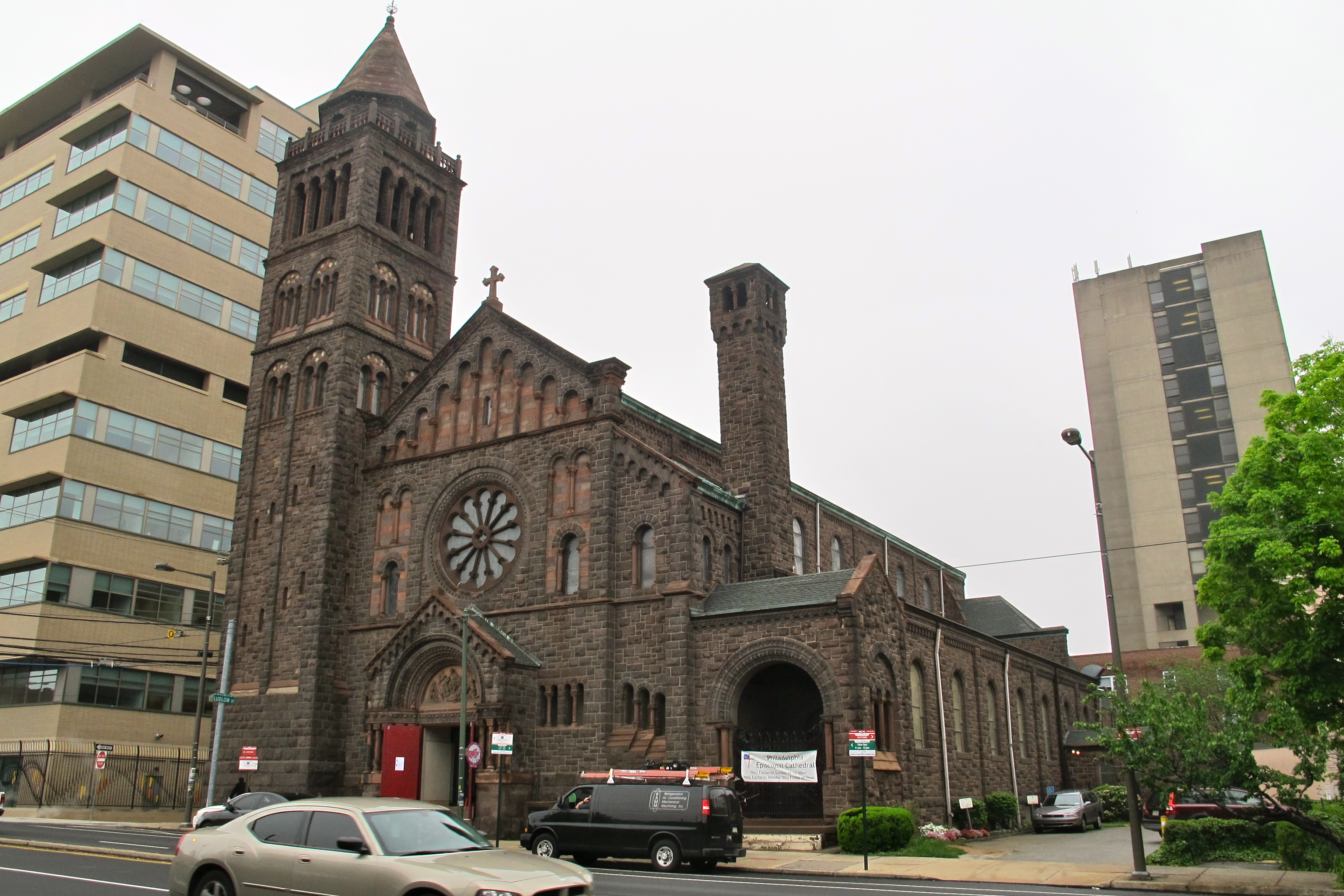
Next the Philadelphia Episcopal Cathedral presented a hardship application, with the assistance of Neil Sklaroff, an attorney with Ballard Spahr. The Cathedral is applying for permission to demolish two historically designated rowhouses on its campus at 38th and Chestnut streets in order to build a 25-story residential tower that they say will support its mission, social services, and create a stream of revenue that will enable restoration work to the historic Cathedral building.
The Episcopal Cathedral is seeking permission for this demolition under a different hardship provision called “necessary public interest,” which is a stricter test, but one that is less clearly defined in the preservation ordinance than financial hardship. The Commission’s past positions on this type of hardship have concentrated on whether or not a proposed project will result in a broad public benefit.
After a two hours of testimony about the dire condition of the Cathedral itself and the proposed tower’s design and site plan, the question of public interest came to the fore. The benefits being claimed are the restoration of the Cathedral building, and the religious and social services provided at the Cathedral’s facilities.
Commissioner Dominique Hawkins questioned whether or not the demolition and proposed development would, in reality, lead to the necessary restoration work at the Cathedral. She asked, “If the purpose of the public interest is to save this building, but yet this application doesn’t save the building…then what is it for?” Sklaroff replied that the public benefit is often indirect.
John Gallery, executive director of the Preservation Alliance for Greater Philadelphia, strongly questioned the necessity of this public benefit and the indirect outcome of the Cathedral’s potential restoration. Based on the limited evidence presented, Gallery cast doubt on the project’s financial viability as well as the likelihood that the Cathedral building will be restored with the possible funds yielded by the residential development.
“There is no guarantee to you that any of the public interest objectives stated by the church, even if you accept them, can be accomplished by what you’ve been given,” Gallery said.
Of particular concern to Gallery was the concept that sacrificing two historic brownstone rowhouses was acceptable because the Cathedral is a more important historic building. They are equal in designation and to Gallery this kind of relativism “is a terribly, terribly dangerous path for the Commission to go down.”
The Commission’s votes ended in a deadlock at 4-4 with one abstention. The hardship case was tabled, and will be heard in the next six months.
WHYY is your source for fact-based, in-depth journalism and information. As a nonprofit organization, we rely on financial support from readers like you. Please give today.





